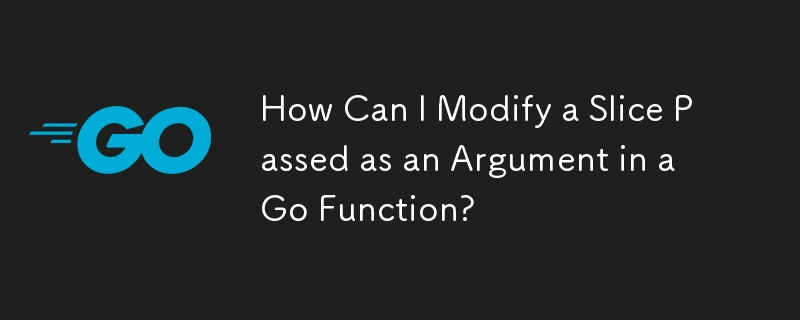

Passing Slices as Arguments with Original Slice Modifications
Passing variables by value in Go limits the effects of function modifications to the function's scope. In cases where a slice needs to be modified outside the function, passing a slice directly as an argument is insufficient.
The Slice Append Function Behavior
The append function allocates a new slice and copies the elements from the existing slice, including any appends made within the function. However, the original slice remains unaffected.
Example: Recursion on an Accumulating Slice
The code snippet provided initially attempts to accumulate validation messages in a slice passed as an argument to a recursive function. However, the function's modifications are not reflected in the original slice.
Solutions
There are two main solutions to this issue:
func myAppend(list *[]string, value string) {
*list = append(*list, value)
}func validate(obj Validatable, messages []ValidationMessage) []ValidationMessage {
//...Processing
return messages
}Idiomatic Go Approach
Passing pointers to slices is an idiomatic Go approach when the function needs to modify the original slice. As demonstrated in the returning slice approach, it is also possible to circumvent the need for accumulators by returning the modified slice.
Performance Considerations
The performance impact of passing a pointer versus returning a slice is negligible in most scenarios. However, the precise behavior may vary depending on compiler optimizations and specific code usage.
The above is the detailed content of How Can I Modify a Slice Passed as an Argument in a Go Function?. For more information, please follow other related articles on the PHP Chinese website!




